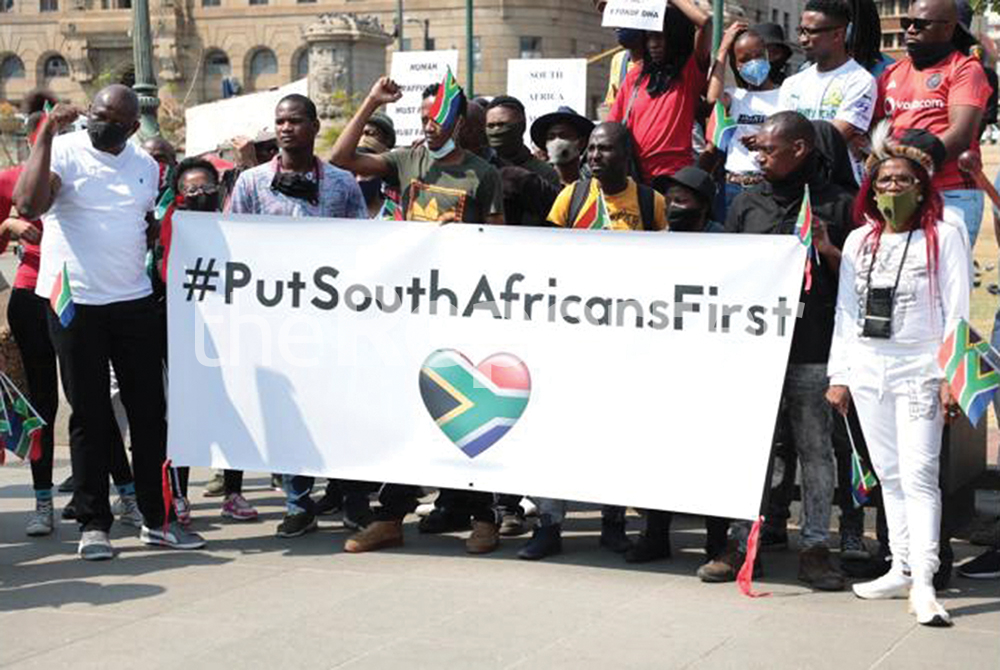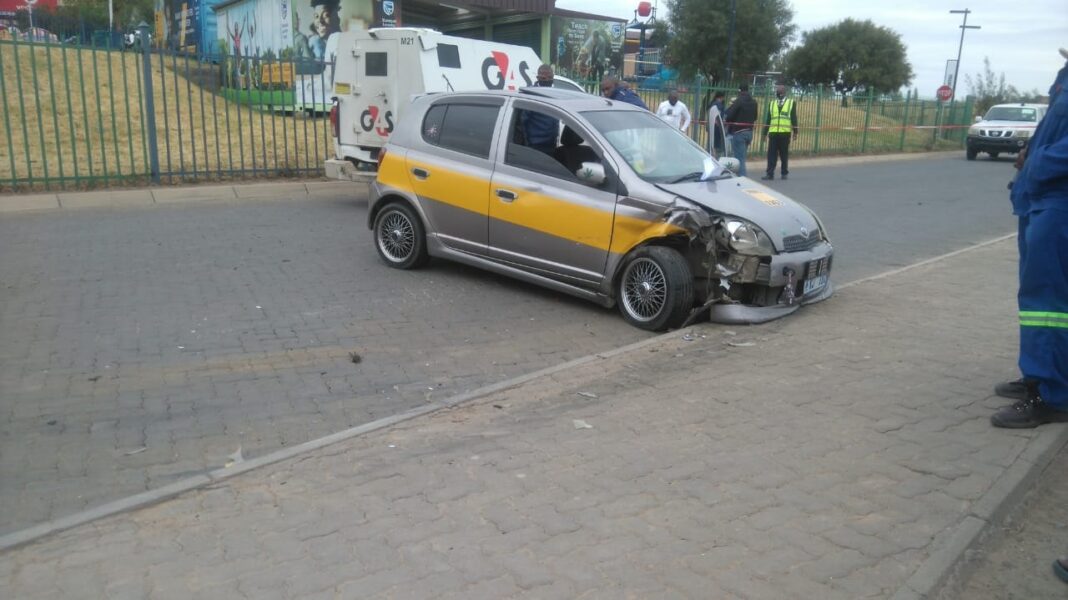By Staff Reporters
There are concerns that Lesotho nationals living in neighbouring South Africa could be affected by a protest march arranged by a South African organisation which has called on citizens of that country to gather in the October 16 march calling for repatriation of foreigners.
The organisation known as Put South Africans First plans to deliver a memorandum to the Nigerian and Zimbabwean Embassies, requesting the repatriation of their citizens, ‘the majority of whom happen to be illegal immigrants in violation of the Immigration Act.’
“We are extremely concerned about the state of our country and the safety of women and children who are the most vulnerable victims of the criminal activities which have skyrocketed over the years to alarming levels due to deliberate porous borders which continue to absorb international criminals,” the movement said.
The Put South Africans First movement said issues of human trafficking and sex slavery syndicates, railway infrastructure looting, drug peddling, violent crimes including the scourge of farm murders would all be addressed during the march.
“We would like to urge South Africans of all races and backgrounds to join the march in a bid to fight for our country. It is our responsibility to make our nation a better place,” it said.
The Put South Africans First Movement is essentially a group of various organisations who are standing together in solidarity for one common cause. He also said it is calling for a “blanket deportation” of all foreigners in South Africa.
Meanwhile, Human Rights Watch (HRW) has released a scathing report on xenophobia in neighbouring South Africa.
It reveals that the number of foreigners killed in a wave of deadly violence last year was under recorded, with attacks also occurring in schools.
Titled “They Have Robbed Me of My Life”, the report’s authors documented xenophobia between March 2019 and March 2020.
The research reveals how anti-foreign sentiment is rising and instead of taking steps to prevent attacks, law-enforcement and government officials target foreigners in public statements, often referring to them as “ungovernable”.
The report says of SA’s citizens:
- 34 percent would prevent foreigners from accessing government services;
- 36 percent would prevent foreigners from accessing jobs;
- 38 percent would prevent foreigners from operating a business in their area; and
- 39 percent would prevent foreigners from moving into their neighbourhood.
Central to the report is the deadly xenophobic violence which occurred in Gauteng, the Western Cape and KwaZulu-Natal between August and September 2019.
While the government said only 12 people were killed in the violence, with only two of those who died foreigners, the report’s authors say that based on interviews with foreign embassy officials, community leaders, lawyers and civil society organisations, there were “a higher number of fatalities”.
The research shows that of those murdered in the violence, 18 were foreigners and seven South Africans.
It also documents how xenophobia is rising in schools, with foreign children and teachers violently attacked and taunted by SA children.
Researchers say a grade 10 Cape Town girl from the Democratic Republic of the Congo (DRC) narrowly survived one such attack.
They say Nathalie (not her real name) was beaten so severely on August 27 2019, shortly after she was elected a class monitor, that she was hospitalised for nine days.
“She was severely beaten by fellow pupils who thought a non-national was undeserving of being elected to such a position.
“Education authorities took no action because, according to them, the offending pupils expressed remorse and taking further action would, in their view, inflame tensions.
“When this report was finalised in August 2020, Nathalie had still not returned to school out of fear. Her attackers are still attending the school, but have faced no consequences.”
The report highlights how public servants often deny the existence of xenophobia or, in some cases, tacitly approve of it.
“Based on interviews with people in Western Cape, Gauteng and KwaZulu-Natal, this report [also] documents xenophobic harassment and attacks by South Africans, including government and law-enforcement officials.”
The authors criticised law enforcers for bogus “documentation raids” and raids on foreign-owned stores under the guise of searching for counterfeit goods.
“The government claims counterfeit goods raids protect the local economy and SA jobs, but sellers told HRW the police have sold confiscated goods back to them after ransacking their shops.”
The report recommends, among other things, that:
- the government fully implements the national action plan (NAP) to combat racism, racial discrimination, xenophobia and related intolerance ;
- the government declares xenophobia a crime;
- the education department ensures proper reporting protocols are in place to deal with xenophobia and pupils responsible for xenophobic incidents are held accountable;
- suspects who commit crimes against foreigners are charged and prosecuted;
- the police ministry investigates how Saps officials respond or contribute to xenophobic incidents; and all government officials undergo anti-xenophobia training.
Dewa Mavhinga, HRW’s Southern Africa director, said they had monitored xenophobic violence in SA and the authorities responses to it for 12 years.
“For this report, we looked at what happened a year after the launch of NAP. What we found was alarming. There is no protection for foreigners. Communities take the law into their own hands and loot properties, with foreigners having nowhere to go, as police provide no protection.
“Because there is wide-scale violence without accountability, it fuels further attacks.”
He said worrying was the preoccupation and obsession authorities had with semantics, saying the violence was criminal and not xenophobic.
“This is an excuse and justification for the violence. Criminality and xenophobia are not mutual exclusive.”
Mavhinga said they would engage the government on their report.
Abigail Dawson, Consortium for Migrants and Refugees SA spokesperson, described the government’s response to addressing xenophobia as “anaemic”.
“There are often early warnings for when xenophobic violence may occur, who the perpetrators are, but the work to prevent violence has been insubstantial. The responses post-violence provide limited recourse and accountability,” she said.
“Discrimination, racism and intolerance needs to be acknowledged before it can be dealt with.”
The African Diaspora Forum’s Dr Vusi Sibanda said: “Government needs to start behaving like a government and ensuring the protection of the rights of everyone in SA, and stop laying blame on migrants for its service delivery failures.
“Migrants are not responsible for service delivery issues. Government must stop brainwashing citizens to think migrants are at fault.”









